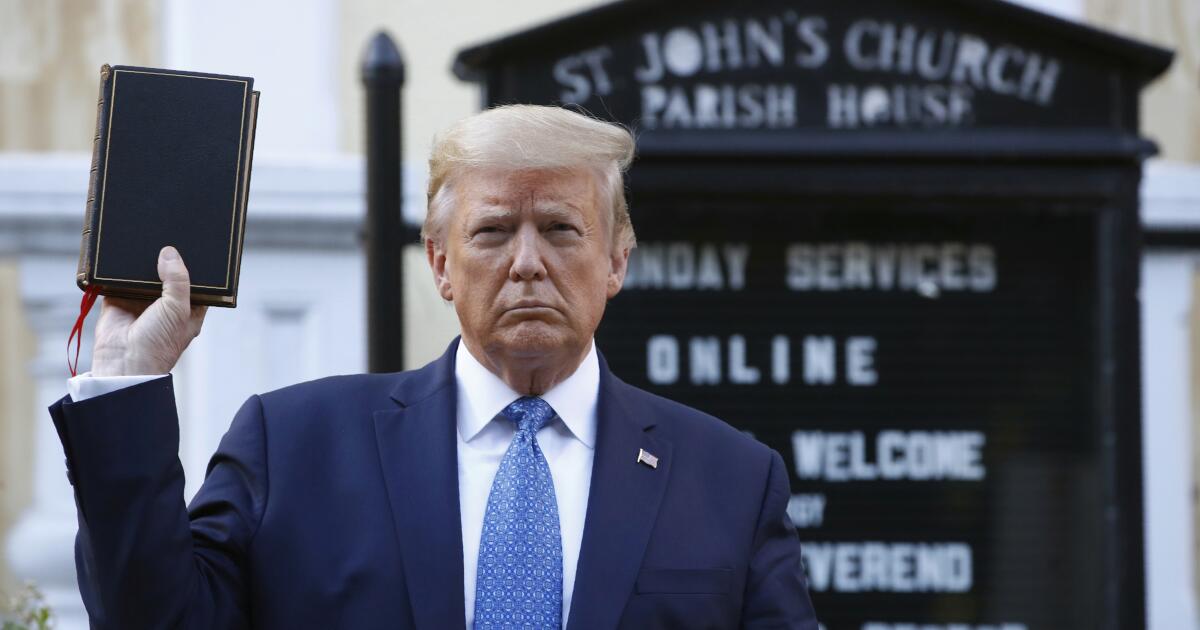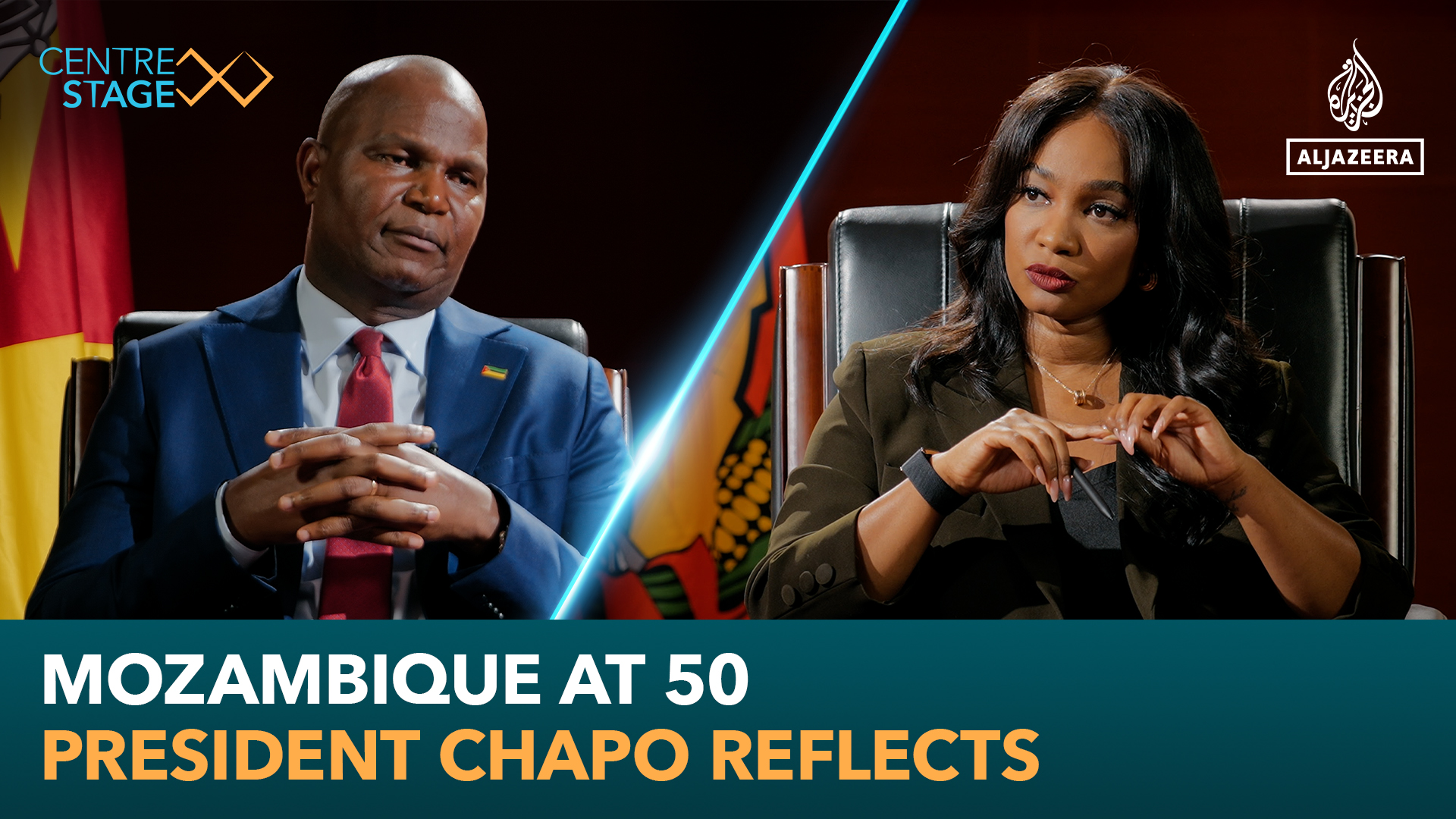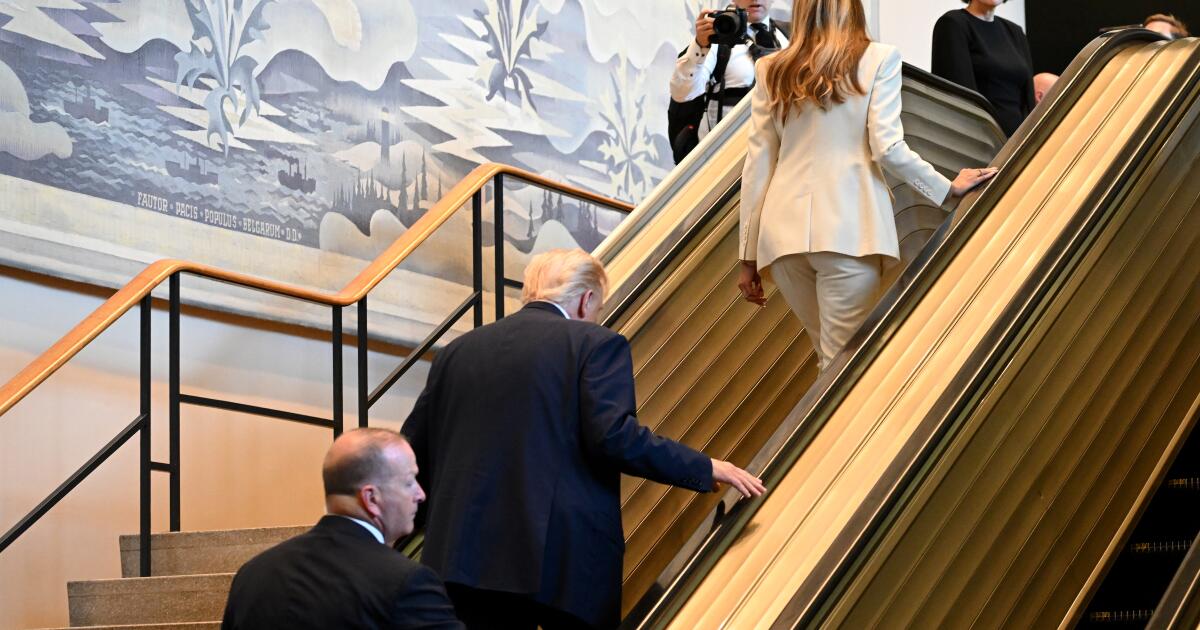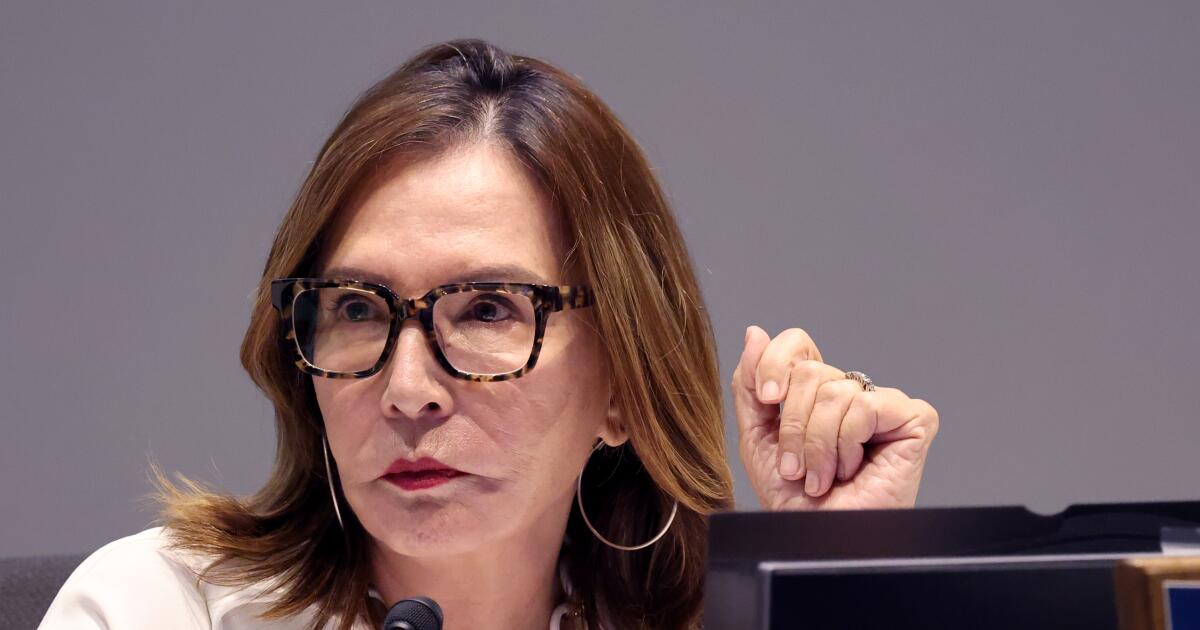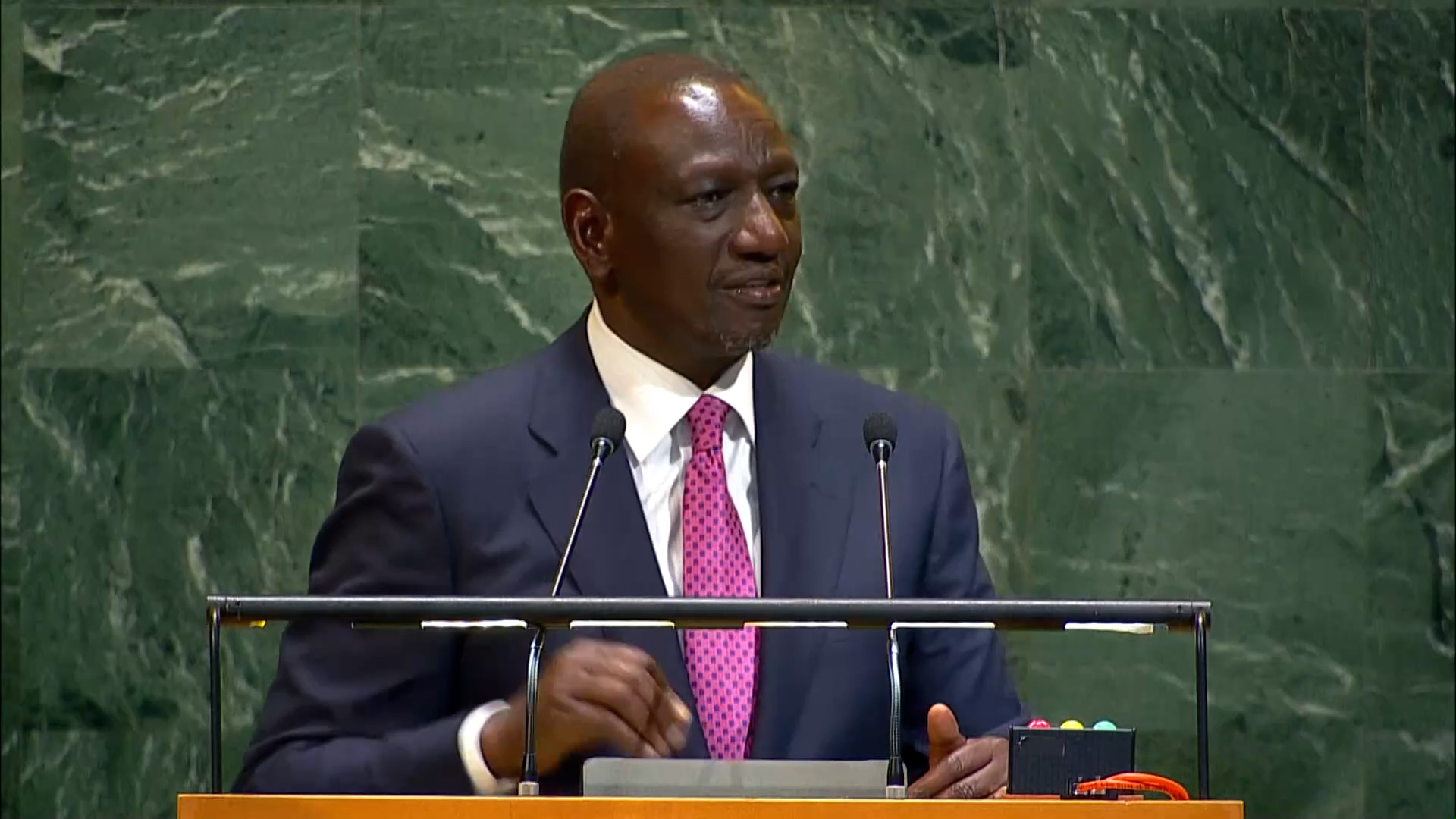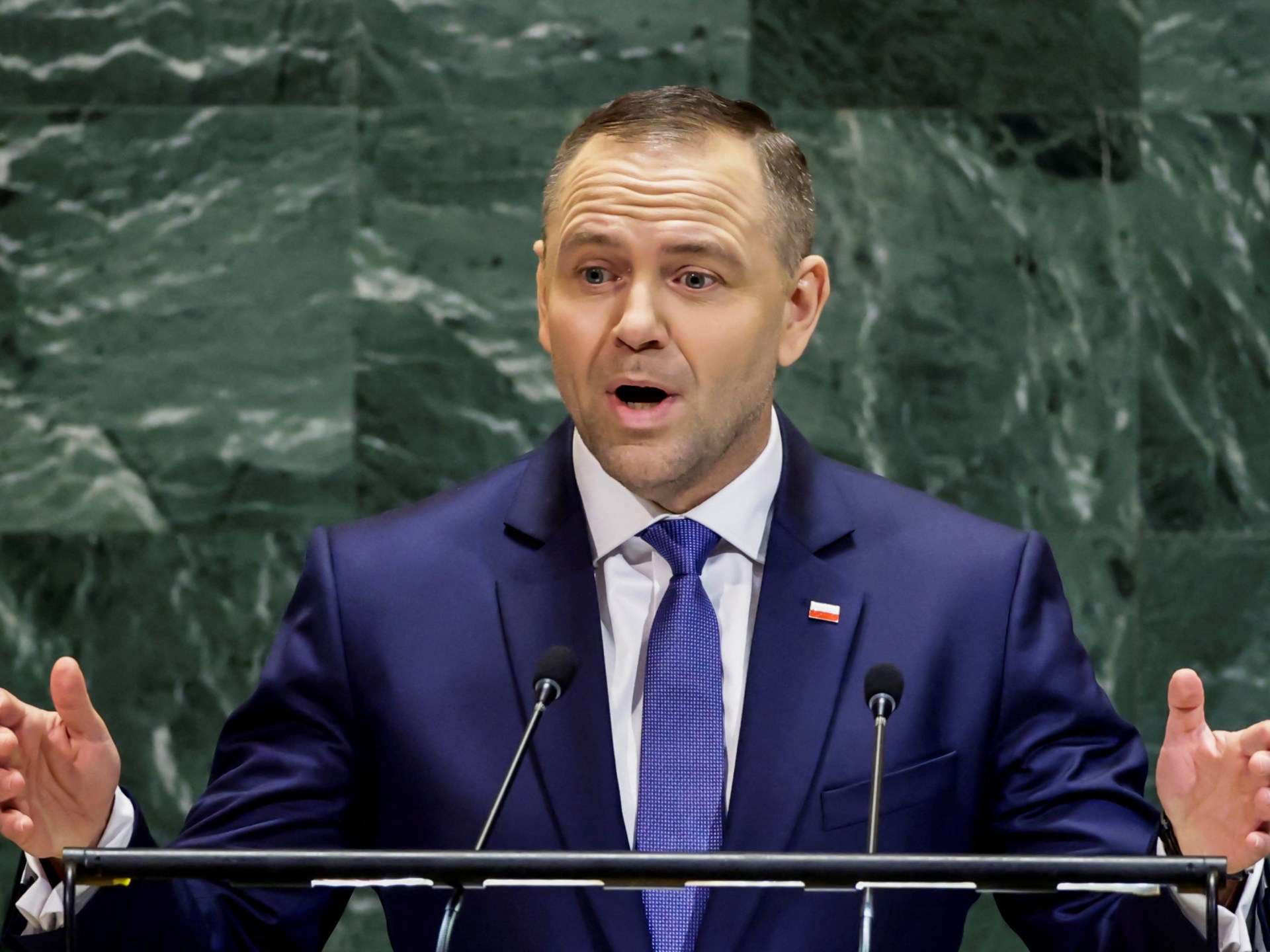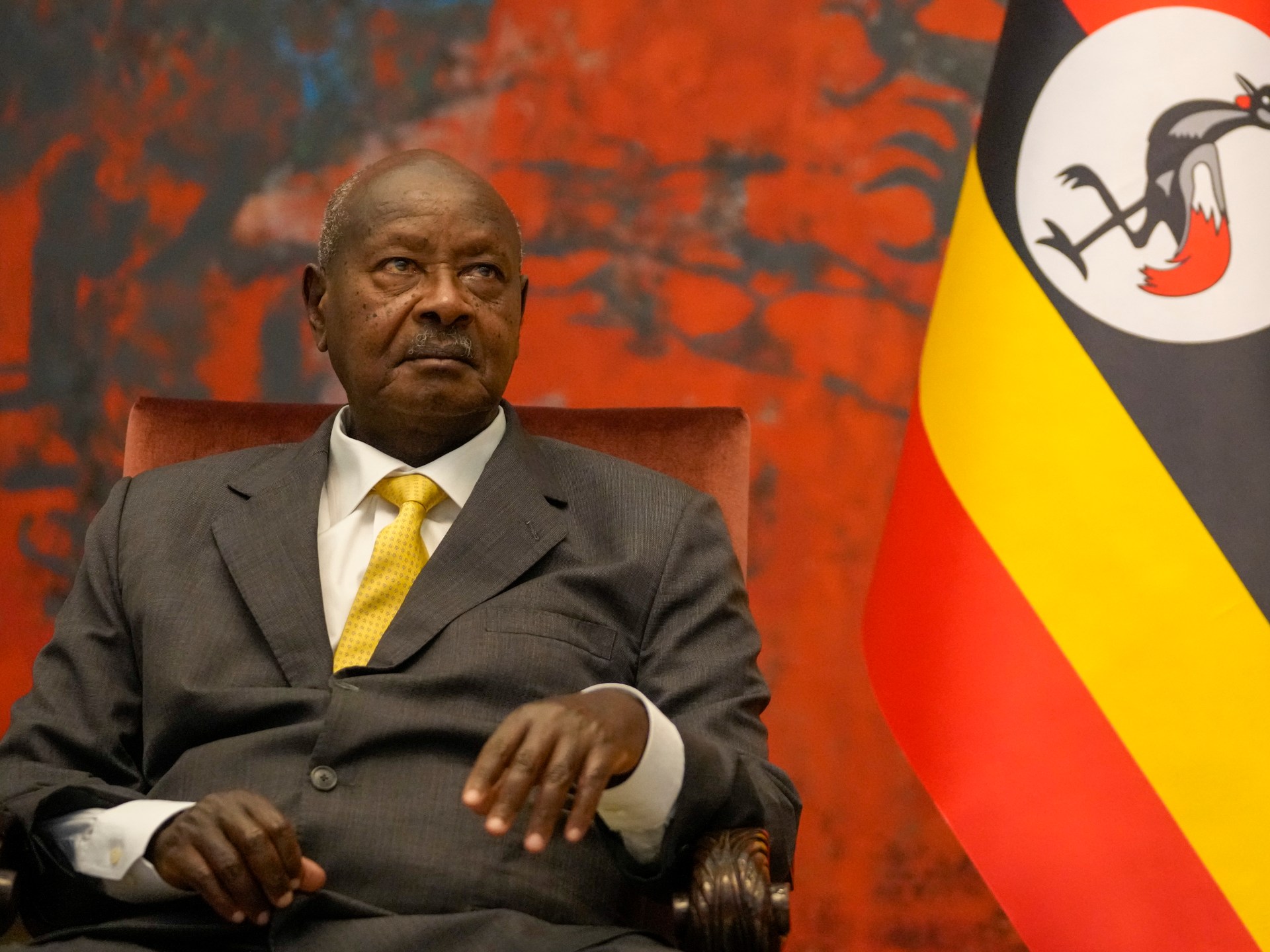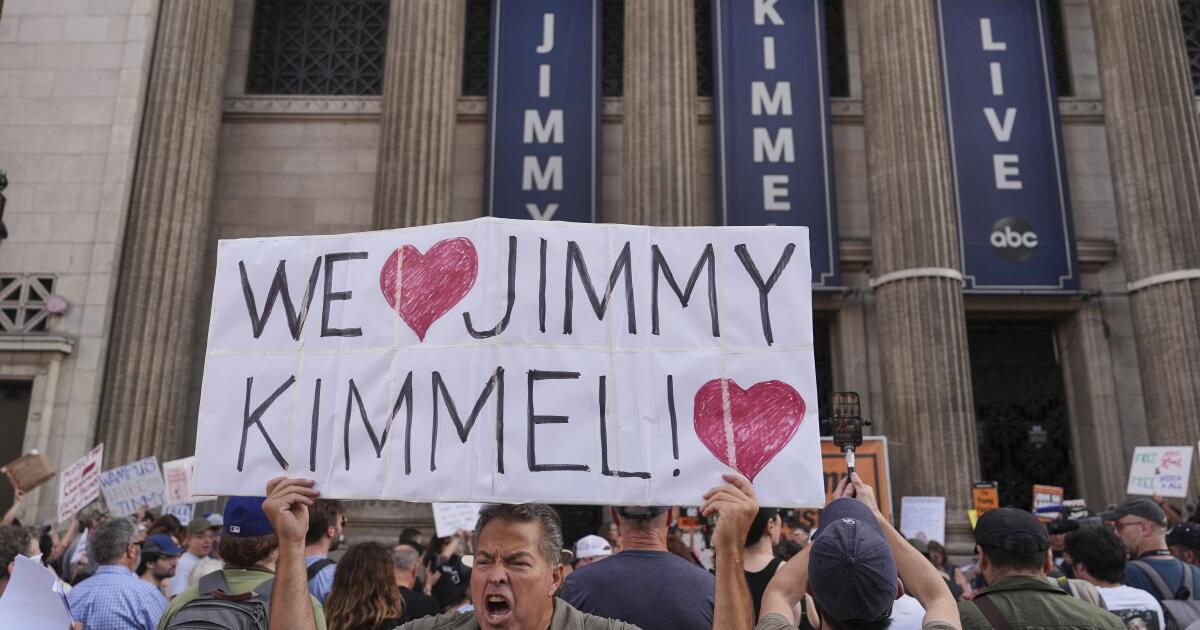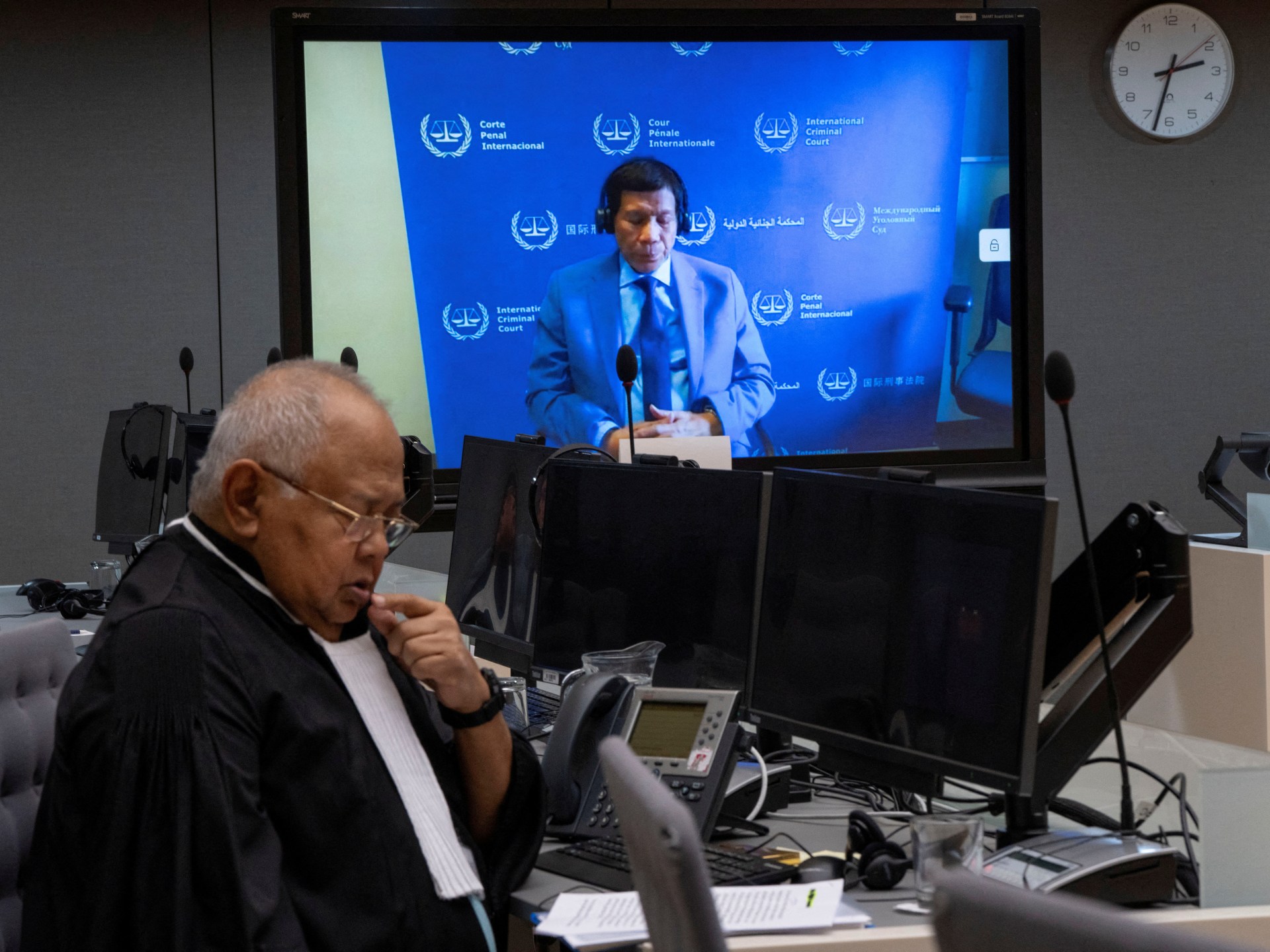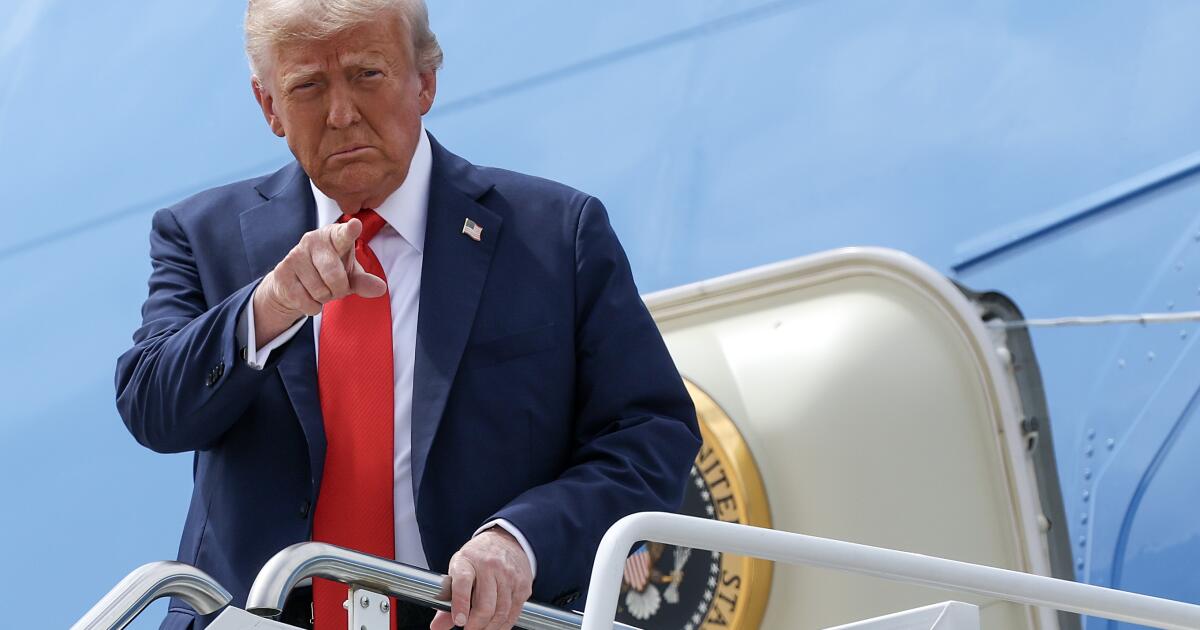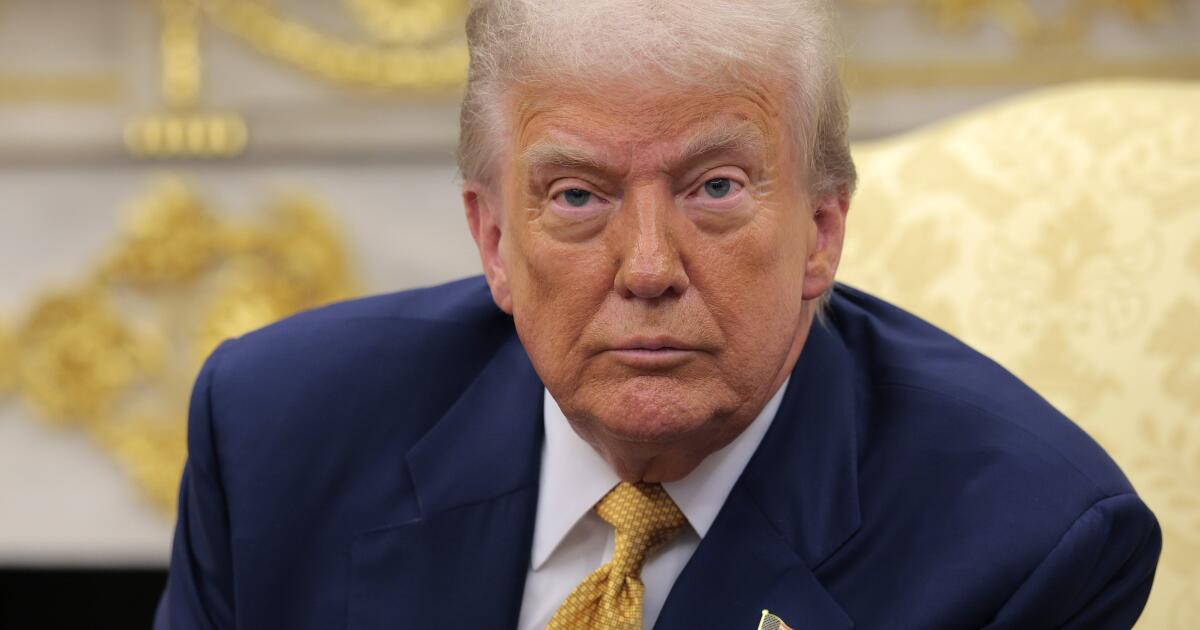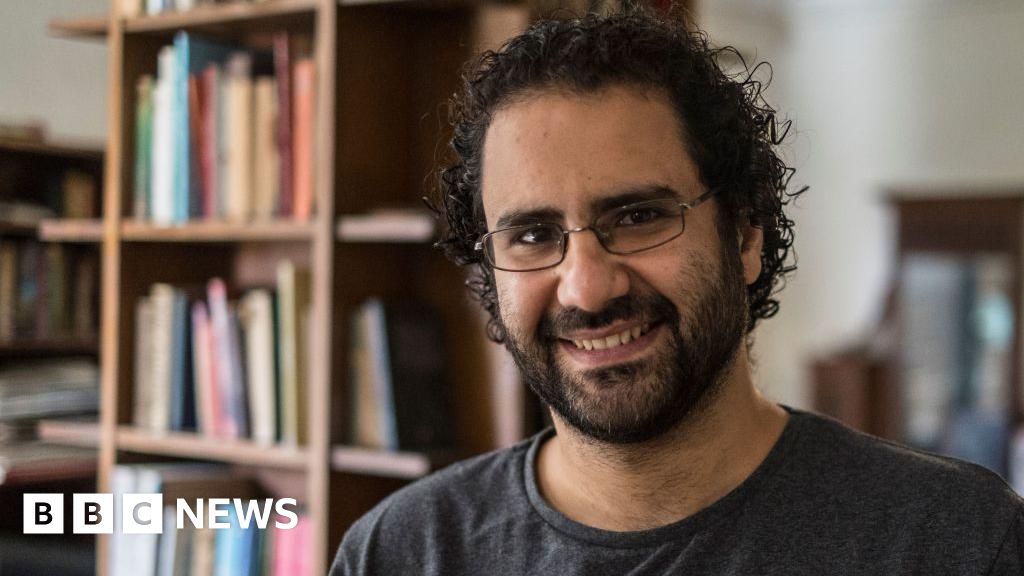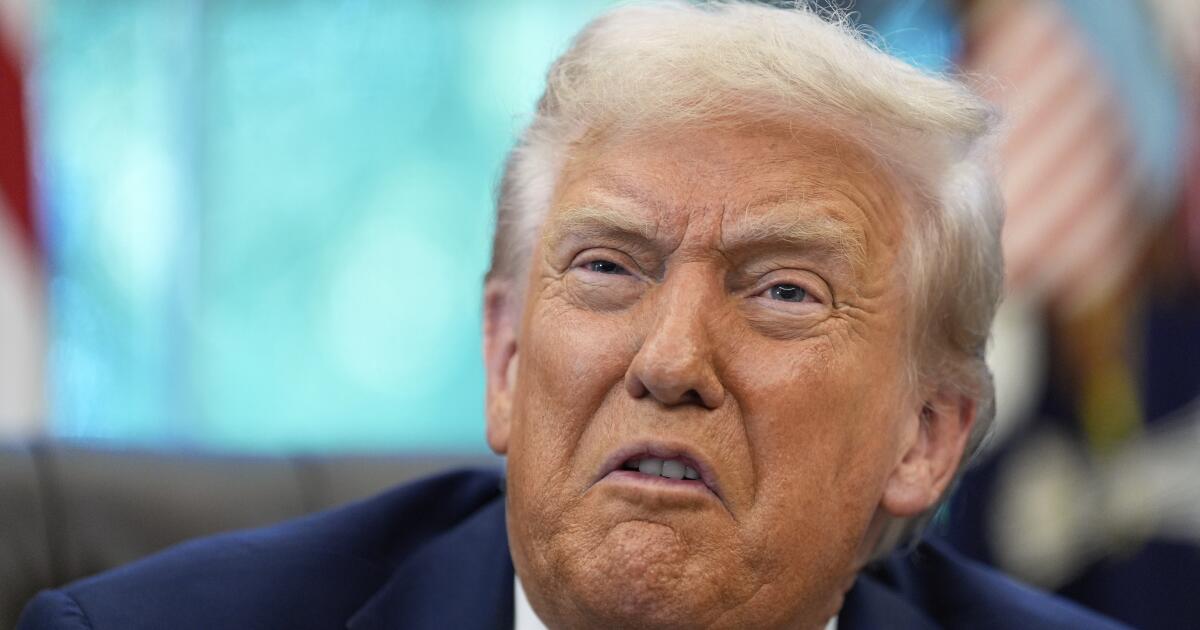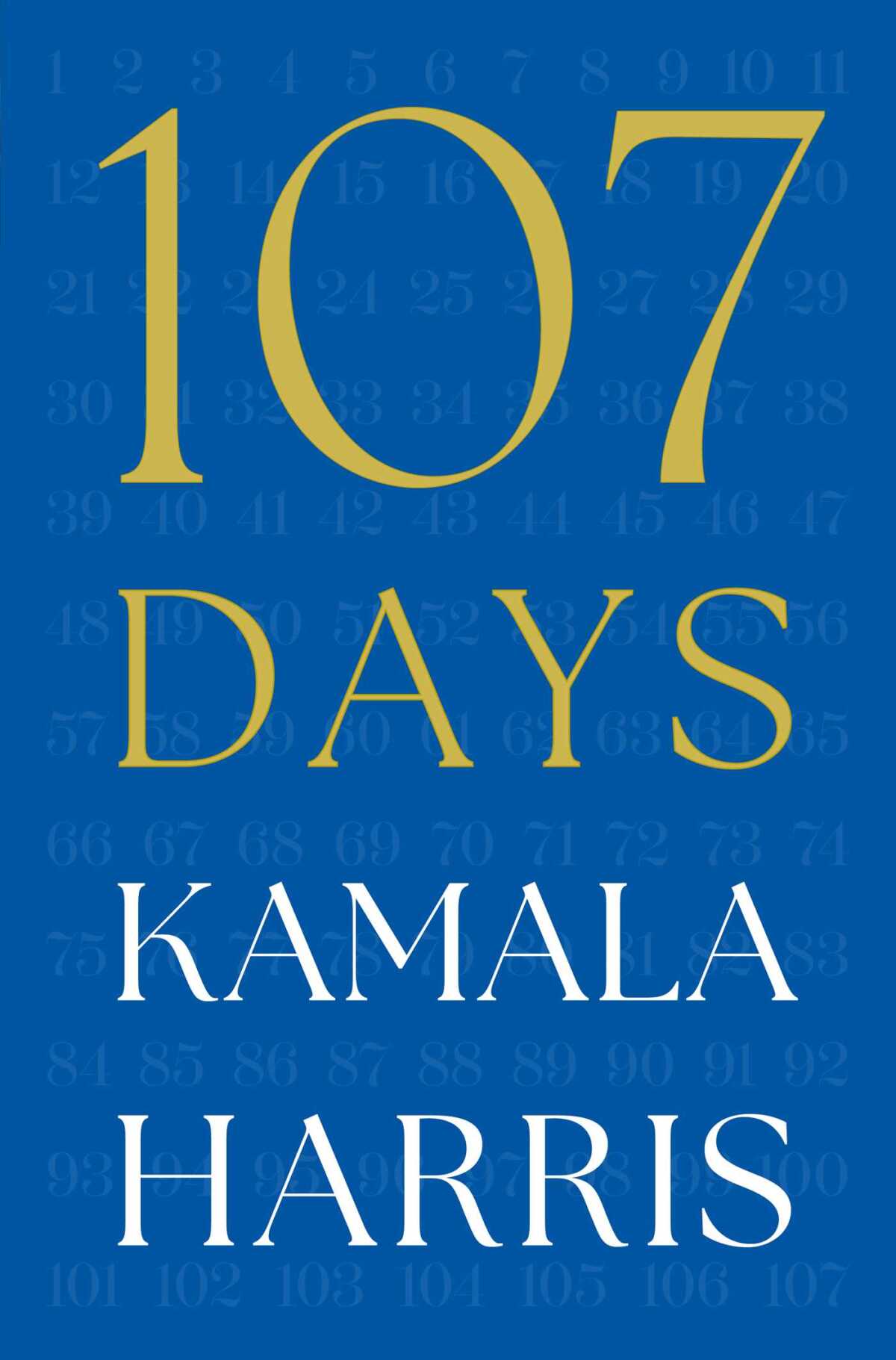From a Catholic school alum, a response to President Trump’s call to prayer
As a young lad growing up in the San Francisco Bay Area town of Pittsburg, my school uniform consisted of corduroys the color of Ash Wednesday, a white dress shirt and a maroon V-neck sweater. I walked west from my family’s apartment on 10th Street, turned left on Montezuma, and arrived about 15 minutes later at the campus of St. Peter Martyr.
My teachers were nuns, the parish priests were Dominicans, and Sunday mass was a celebration of faith, humility and grace.
I am not without sin. I’m an imperfect man and the church is an imperfect institution.
But I’ve been wondering lately what my favorite St. Peter Martyr teachers — Sisters Roberta, Eileen and Estelle — would make of today’s political discourse, in which claims of piety and Christian faith are not always backed by words and deeds, particularly from a certain world leader.
I think if they were teaching today, the nuns would tell everyone in class to get out their pencils and notebooks and write a letter to the president.
So here goes.
Dear President Trump:
Ever hear of St. Peter Martyr School?
Probably not, but I’m an alum. The school was named after St. Peter of Verona, who campaigned against heresy and paid the price when one of the Cathars sunk an ax into his skull (what a way to go). So I guess politics haven’t really changed much over the centuries.
By the way, nice job recently on your presentation at the National Bible Museum, where you launched the “America Prays” initiative to celebrate spirituality and restore “our identity as one nation under God.” And congratulations on your missionary work. I see that you raked in $1.3 million on your “God Bless the USA Bible.”
Love that you said: “To have a great nation, you have to have religion. I believe that so strongly. There has to be something after we go through all of this — and that something is God.”
Well put, Mr. President, and unsurprising, given that you once called the Bible your favorite book. But I know that in my own life, I need to flip back through the pages on occasion to ground myself in the teachings.
So here’s an idea:
I’ll share a Bible verse, and then I’ll follow it with a recent quote from you. Not that I’m judging, or anything. But we might all benefit spiritually by asking whether, in our own lives, God would approve of how we conduct ourselves.
Are you ready?
Corinthians 12: “Love is patient and kind; love does not envy or boast; it is not arrogant or rude.”
Trump: “You know, Biden was always a mean guy, but he was never a smart guy. … You go back 30 years ago, 40 years ago, he was a stupid guy, but he was always a mean son of a bitch.”
Essay Topic: An obsessive need to demean and diminish others is explained by some behavioral therapists as a sign of insecurity, weakness, or an unhappy childhood. Write 500 words, in cursive, on how any of this might apply to you.
Genesis 2:15: “The Lord God took the man and put him in the garden of Eden to work it and keep it.”
Trump: “This climate change, it’s the greatest con job ever perpetrated on the world in my opinion … all of these predictions made by the United Nations and many others, often for bad reasons, were wrong, they were made by stupid people. … If you don’t get away from this green scam, your country’s going to fail.”
Essay Topic: Despite the growing horror of melting icecaps, deadly storms, disappearing coasts and widespread famine, if the Garden of Eden were a national forest, would you lay off Adam or Eve, or both of them, and would anything prevent you from opening the property to drilling?
John 3:17: “But if anyone has the world’s goods and sees his brother in need, yet closes his heart against him, how does God’s love abide in him?”
Trump: “It’s time to end the failed experiment of open borders. You have to end it now. It’s — I can tell you. I’m really good at this stuff. Your countries are going to hell.”
Essay Topic: Given that we probably shouldn’t, as mere mortals, assume divine powers, is condemning someone to hell — or entire countries, in this case — an act of blasphemy?
Leviticus 19: “The foreigner residing among you must be treated as your native-born. Love them as yourself, for you were foreigners in Egypt.”
Trump: “They’re eating the dogs, the people that came in, they’re eating the cats. They’re eating the pets of the people that live there, and this is what’s happening in our country, and it’s a shame.”
Essay Topic: You once said immigrants are “poisoning the blood of our country,” and yet your late mother and two of your three wives were immigrants. Were you ever tempted to have any, or all three of them deported, and if so, in which order?
Psalm 103: “The Lord is compassionate and gracious, slow to anger, abounding in love.”
Trump: “Happy Memorial Day to all, including the scum that spent the last four years trying to destroy our country.”
Essay Topic: Given that Jesus would not likely have called half the population of the United States scum, and that he probably would have protested ICE raids at Home Depots, would you say the son of God was a member of the extreme radical left?
Matthew 5: “You have heard that it was said, ‘Love your neighbor and hate your enemy.’ But I tell you, love your enemies and pray for those who persecute you, that you may be children of your Father in heaven.”
Trump: “I hate my opponent and I don’t want what’s best for them. … I can’t stand my opponent.”
Essay Topic: Which saying do you find the most offensive and probably created by the radical left — turn the other cheek, or treat others as you would have them treat you?
Bonus points: At what age did you begin pulling the wings off of butterflies, and which, if any, of the 10 Commandments have you not broken?
Matthew 23: “Whoever exalts himself will be humbled, and whoever humbles himself will be exalted.”
Trump: “I was saved by God to make America great again.”
Mr. President, you recently said, “I want to try and get to heaven, if possible.”
Hallellujah and amen to that. And yes, it is possible.
But first you must write and recite, 1,000 times, the Act of Contrition. (It’s the prayer that ends with: “I firmly resolve, with the help of Thy grace, to sin no more and to avoid the near occasion of sin. Amen.”)
Sisters Roberta, Eileen and Estelle will be waiting for you at the Pearly Gates. And trust me — they will know if you’ve done your homework.
